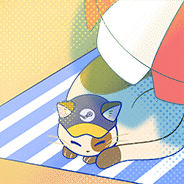安裝 Steam
登入
|
語言
簡體中文
日本語(日文)
한국어(韓文)
ไทย(泰文)
Български(保加利亞文)
Čeština(捷克文)
Dansk(丹麥文)
Deutsch(德文)
English(英文)
Español - España(西班牙文 - 西班牙)
Español - Latinoamérica(西班牙文 - 拉丁美洲)
Ελληνικά(希臘文)
Français(法文)
Italiano(義大利文)
Bahasa Indonesia(印尼語)
Magyar(匈牙利文)
Nederlands(荷蘭文)
Norsk(挪威文)
Polski(波蘭文)
Português(葡萄牙文 - 葡萄牙)
Português - Brasil(葡萄牙文 - 巴西)
Română(羅馬尼亞文)
Русский(俄文)
Suomi(芬蘭文)
Svenska(瑞典文)
Türkçe(土耳其文)
tiếng Việt(越南文)
Українська(烏克蘭文)
回報翻譯問題






















As part of storytelling, information may be expressed through words or through presentations of events. Black storytelling is unique as it relied extensively off of visual cues.
Would you see such a vivid scene with such intricate figures elsewhere?
With the invention of superior picture moving technologies this meant popular stories, fairy tales and folk tales could be produced. Often these films would feature characters with distinctly plump lips.
It could be argued that these now racially insensitive depictions of black people may have very well been echoes of their work. Highly patriarchal, white imperial powers often oversaw production and any would be black owned studio would have needed to be cautious to not face the wrath of the public and white governments.
Now we have had amazing cartoon series such as Boondocks; made by openly black creators for the entertainment of a black audience and enjoyed by everyone, as it always should have been.
The battle is not over yet however. Black identity is still under attack thanks to systematic racism and discrimination. The Japanese animation industry or 'anime', as it is often referred to, has long persecuted black artists with names being omited.
We must support black artists and black content creators. so that they can succeed despite the adversity they face. There is no 'me' in 'happiness but our combined successes as the human race can bring about happiness.